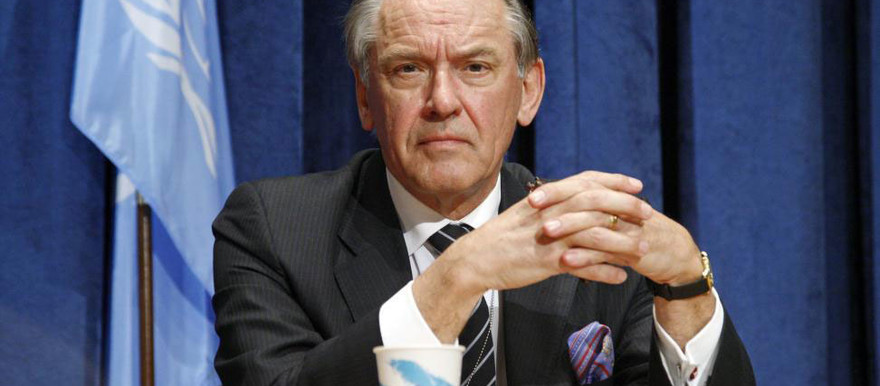UN Deputy Secretary General, Jan Eliasson, has called upon civil society and media practitioners to engage with a government initiative to ensure that those who threaten, intimidate and harass journalists are brought to justice. He called for necessary resources to be spent on preventing and investigating attacks on journalists as well as holding those responsible to account.
Jan was speaking at a training of journalists on human rights, a project intended to highlight and promote human rights, which are crucial in laying the foundation of a democratic state.
The Minister of Information and Broadcasting and government spokesperson, Barnaba Marial Benjamin, had expressed the need in February for South Sudan to become a pilot country in implementing the UN Joint Plan of Action for the safety of journalists. The plan aims to create a free and safe environment for journalists and media practitioners.
Jan however said that there are growing concerns expressed by both international stakeholders and also the local media personals, civil society and also some government officials. They are primarily concerned about an emergence of arbitrary arrests, threats and intimidation of journalists as well as the recent murder of the columnist Abraham Chol which is as of yet unsolved.
The Deputy Secretary General highlighted that a strong, independent and free media is crucial for the development and maintenance of a free and democratic society in any country.
“Once the media is functional and professionally oriented then it may contribute to peace building, social and national reconstruction,” he said.
“Independent and diverse media are some of the essential requirements for cultivating a culture of accountibilty, human rights, rule of law in the new nation,” added Jan.
His speech outlined the necessity to implement media policy strategies which should focus on four areas: legal reform without unduly limiting freedom of expression; the enhancement of civil society engagement; the protection and safety of media practitioners including accountability for those who threaten media workers to resort to violence; and lastly, support for a self-regulatory mechanism.
Speaking on behalf of the Association of Media Development in South Sudan (AMDISS), Alfred Taban, also the Editor-in Chief of the Juba Monitor said that the government should set up rules that do not violate human rights.
“In many cases some of the violations are committed by the government, others are unknowingly committed by people as some of the traditional customs are not in line with human rights,” he added.
The current training is therefore designed to help journalists understand the meaning of human rights in order that they can respond to violations given that many of these are committed out of a lack of understanding.
File photo: Jan Eliasson (UN)




